
Student and Instructor of the Sacred Sciences | Interests: Poetry, Manuscripts, Ḥadīth Transmission, Legal Theories & Coffee
2 subscribers
How to get URL link on X (Twitter) App


 [1] What is the Mālikī view on bringing children to the mosque?
[1] What is the Mālikī view on bringing children to the mosque?
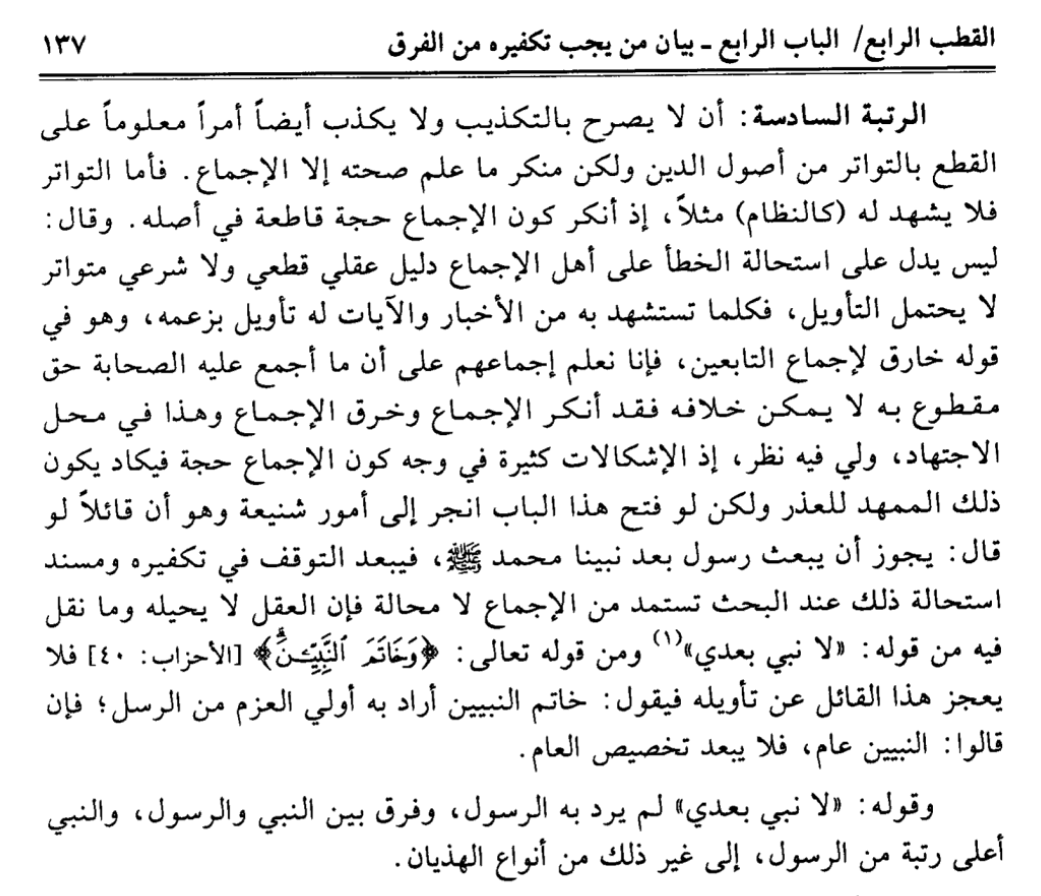
https://twitter.com/abdul_now/status/1754616502349652418[1] To understand the statement of al-Ghazzālī in al-Iqtiṣād, it is necessary to understand the context. When he mentions this, he is refuting those who deny matters that are only known through legal consensus (ijmāʿ). He disagrees with those who deny the authority of consensus in such matters and then presents a hypothetical situation to explain his point.

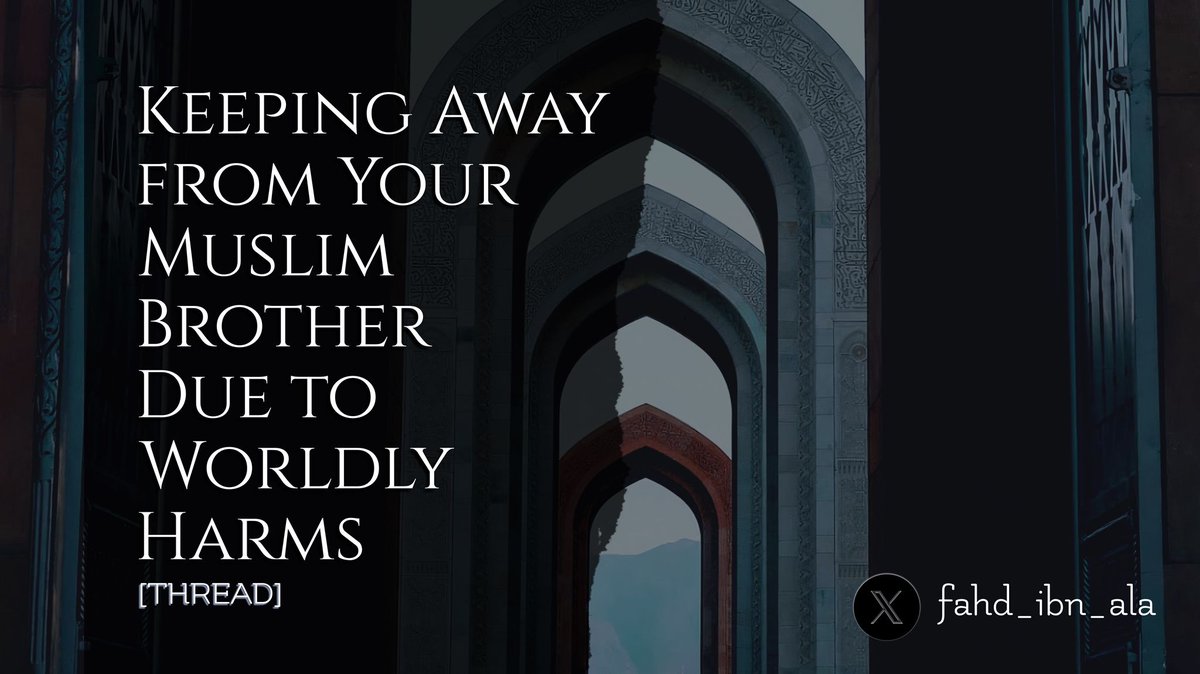
 The famous ḥadīth of the Prophet ﷺ clearly says that it is not allowed for a Muslim to keep away from his/her Muslim brother/sister “for more than three days.” [al-Bukhārī & Muslim]
The famous ḥadīth of the Prophet ﷺ clearly says that it is not allowed for a Muslim to keep away from his/her Muslim brother/sister “for more than three days.” [al-Bukhārī & Muslim]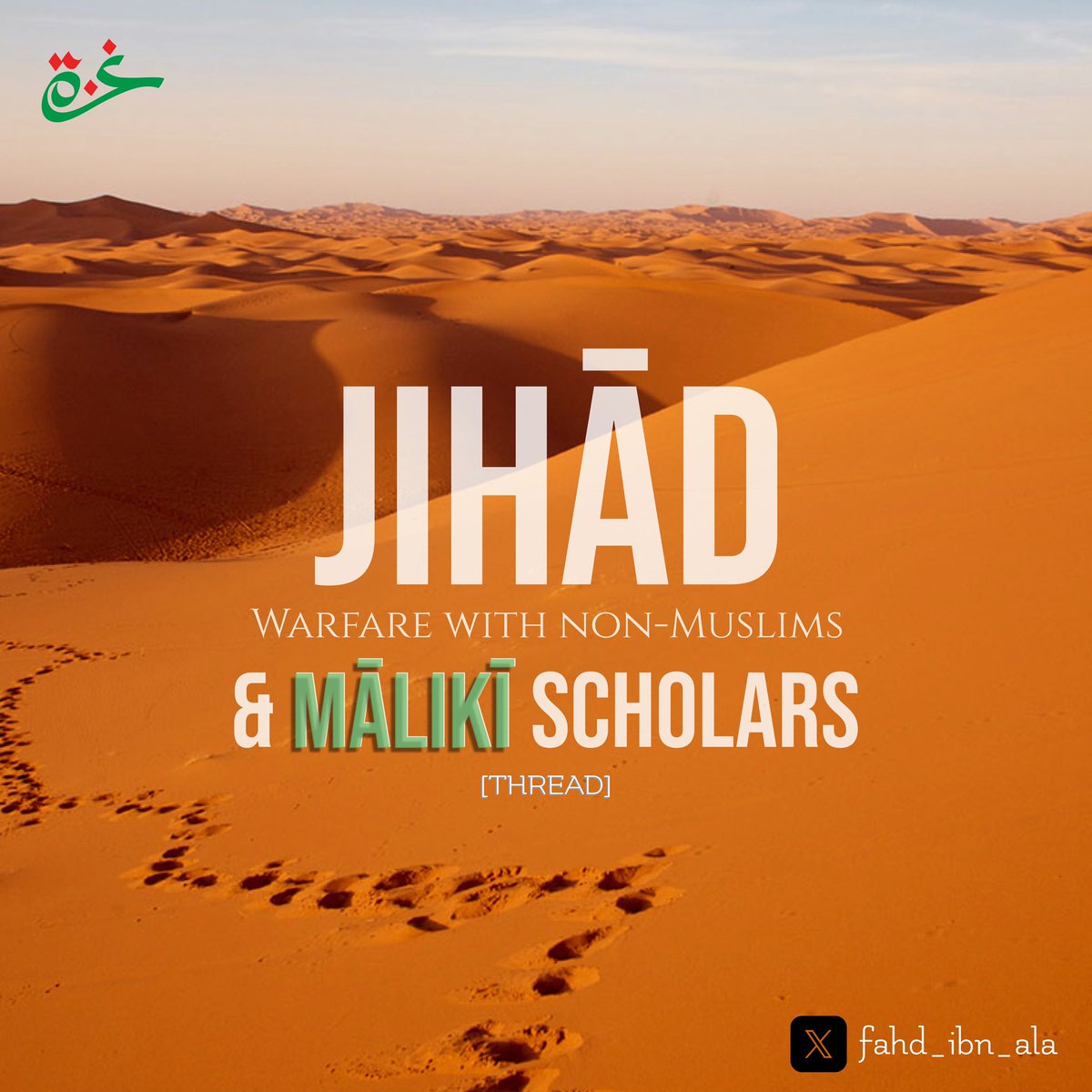
 This thread comprises the views of traditional Mālikī scholars from the 6th to the 14th Islamic centuries, from various parts of the world, on the permissibility of engaging in physical combat with non-Muslims.
This thread comprises the views of traditional Mālikī scholars from the 6th to the 14th Islamic centuries, from various parts of the world, on the permissibility of engaging in physical combat with non-Muslims.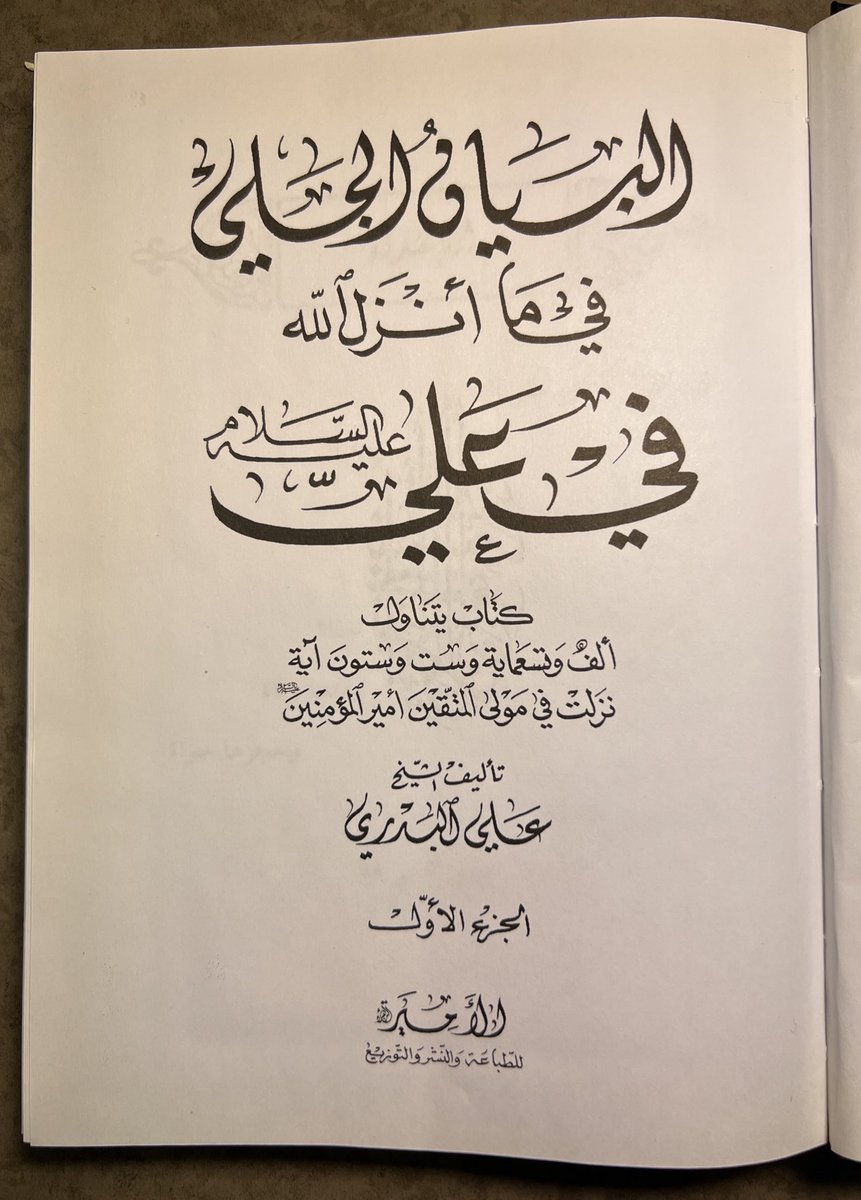
 The work is embellished with a foreword by al-Sayyid Muḥammad Ḥusayn Murtaḍā, a known scholar, researcher and a senior Ḥawzah instructor from Temnine El Tahta, Lebanon. This reinforces the confidence and expectations for readers: We’re not reading an anonymous author’s work.
The work is embellished with a foreword by al-Sayyid Muḥammad Ḥusayn Murtaḍā, a known scholar, researcher and a senior Ḥawzah instructor from Temnine El Tahta, Lebanon. This reinforces the confidence and expectations for readers: We’re not reading an anonymous author’s work. 
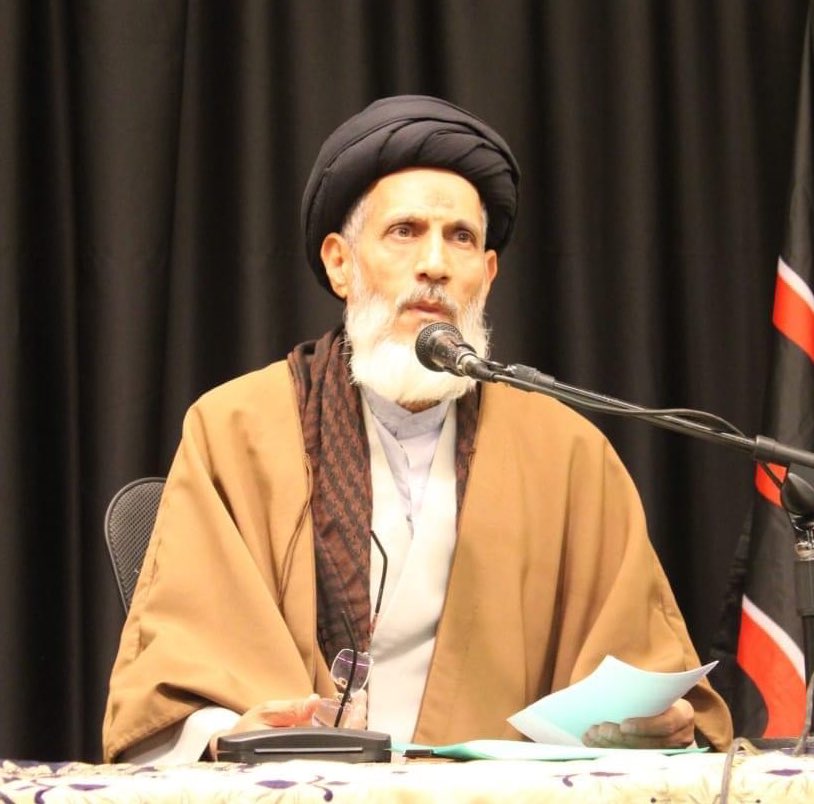

https://twitter.com/mhuseinqadri/status/1683004807471067136Let me quote the parts before the mentioned passage so Ibn al-Humām’s words are understood with context/more correctly:


 …outside the fold of Islam due to a mistake they’ve made in their theology [kalām]... for allowing laymen [juhhāl] to deem the scholars of Muslims outside the fold of Islam is from the greatest evil actions [munkarāt].
…outside the fold of Islam due to a mistake they’ve made in their theology [kalām]... for allowing laymen [juhhāl] to deem the scholars of Muslims outside the fold of Islam is from the greatest evil actions [munkarāt].
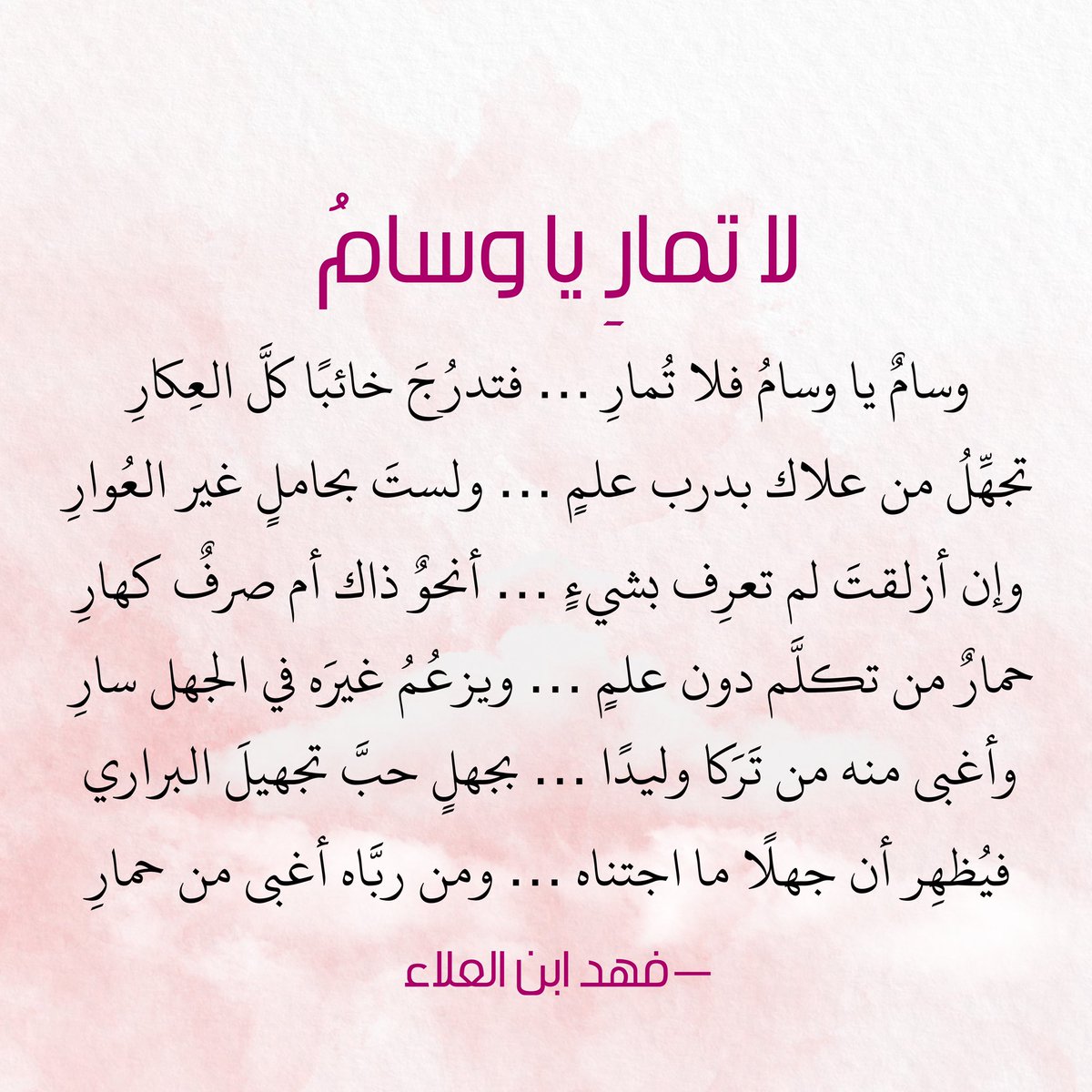
https://twitter.com/AlmahdiWesam/status/1644189896846745600

https://twitter.com/fahd_ibn_ala/status/1662326185932595201

 The ḥadīth marvel of his time, ʿAbd al-Ḥayy al-Kattānī (d. 1382) narrates a quite unique patterned (musalsal) narration from his father ʿAbd al-Kabīr al-Kattānī (d. 1333)—mentioning that he heard this narration from his father’s mouth multiple times.
The ḥadīth marvel of his time, ʿAbd al-Ḥayy al-Kattānī (d. 1382) narrates a quite unique patterned (musalsal) narration from his father ʿAbd al-Kabīr al-Kattānī (d. 1333)—mentioning that he heard this narration from his father’s mouth multiple times.
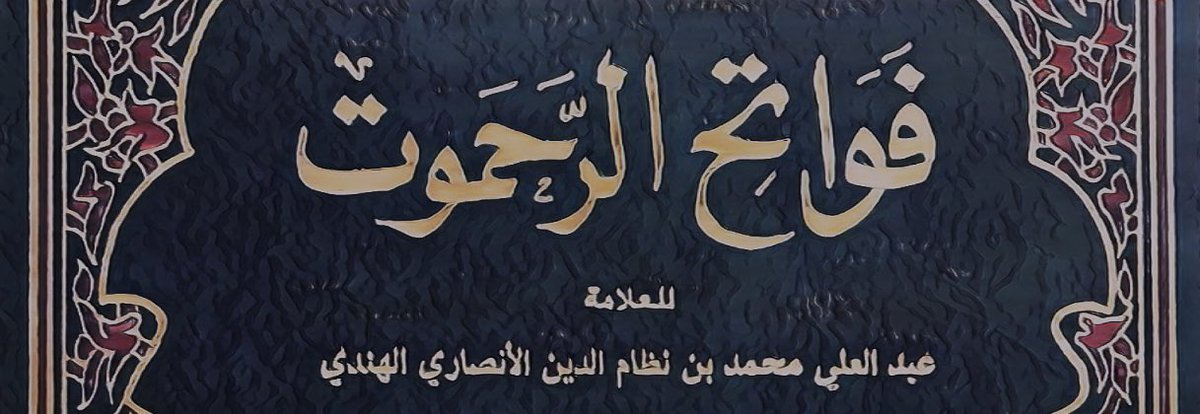
 The author of Fawātiḥ al-Raḥamūt and other masterpieces, ʿAbd al-ʿAlī al-Laknawī (d. 1225), was known in his teenage years as the one who would have arduous discussions with his teacher, Kamāl al-Dīn al-Fatḥbūrī (d. 1175).
The author of Fawātiḥ al-Raḥamūt and other masterpieces, ʿAbd al-ʿAlī al-Laknawī (d. 1225), was known in his teenage years as the one who would have arduous discussions with his teacher, Kamāl al-Dīn al-Fatḥbūrī (d. 1175).

 Ibn Mawdūd (d. 683), the famous Iraqi expert of jurisprudence, says in his ‘al-Ikhtiyār’ after quoting Muḥammad b. al-Ḥasan:
Ibn Mawdūd (d. 683), the famous Iraqi expert of jurisprudence, says in his ‘al-Ikhtiyār’ after quoting Muḥammad b. al-Ḥasan:
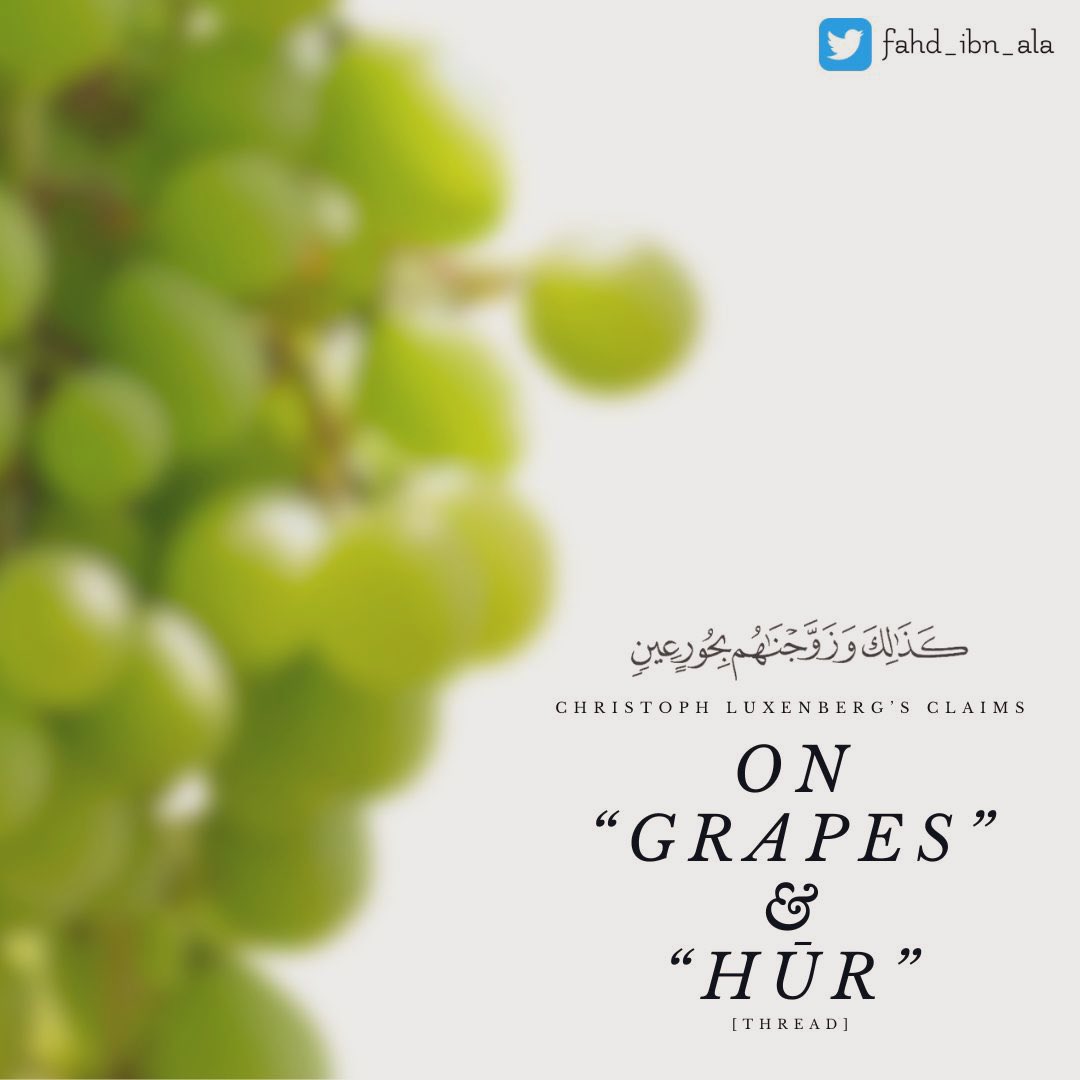
 For quite some time, commentators like Nicholas D. Kristof (@NickKristof), Irshad Manji (@IrshadManji), etc. have claimed that the Qur’ānic word “ḥūr” [حُور] refers to “grapes” or “raisins” and not actual female beings. Other devotees, like @ImtiazMadmood, just follow them.
For quite some time, commentators like Nicholas D. Kristof (@NickKristof), Irshad Manji (@IrshadManji), etc. have claimed that the Qur’ānic word “ḥūr” [حُور] refers to “grapes” or “raisins” and not actual female beings. Other devotees, like @ImtiazMadmood, just follow them. 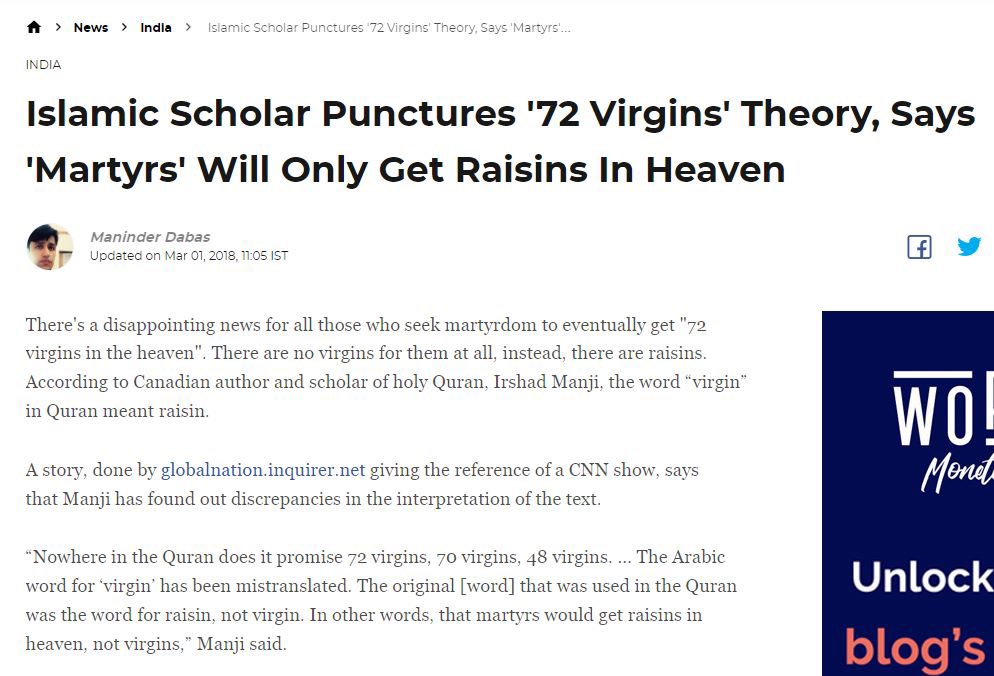

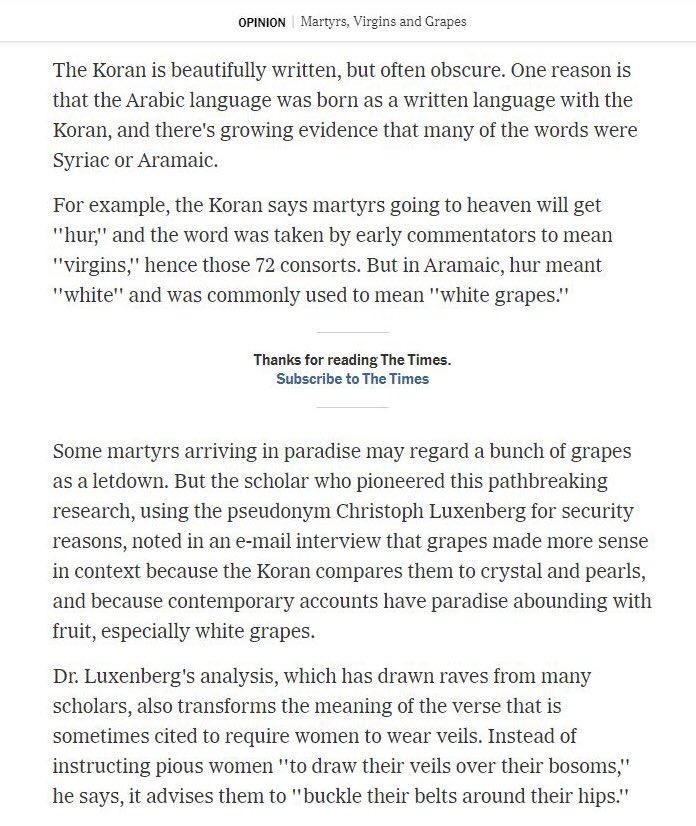

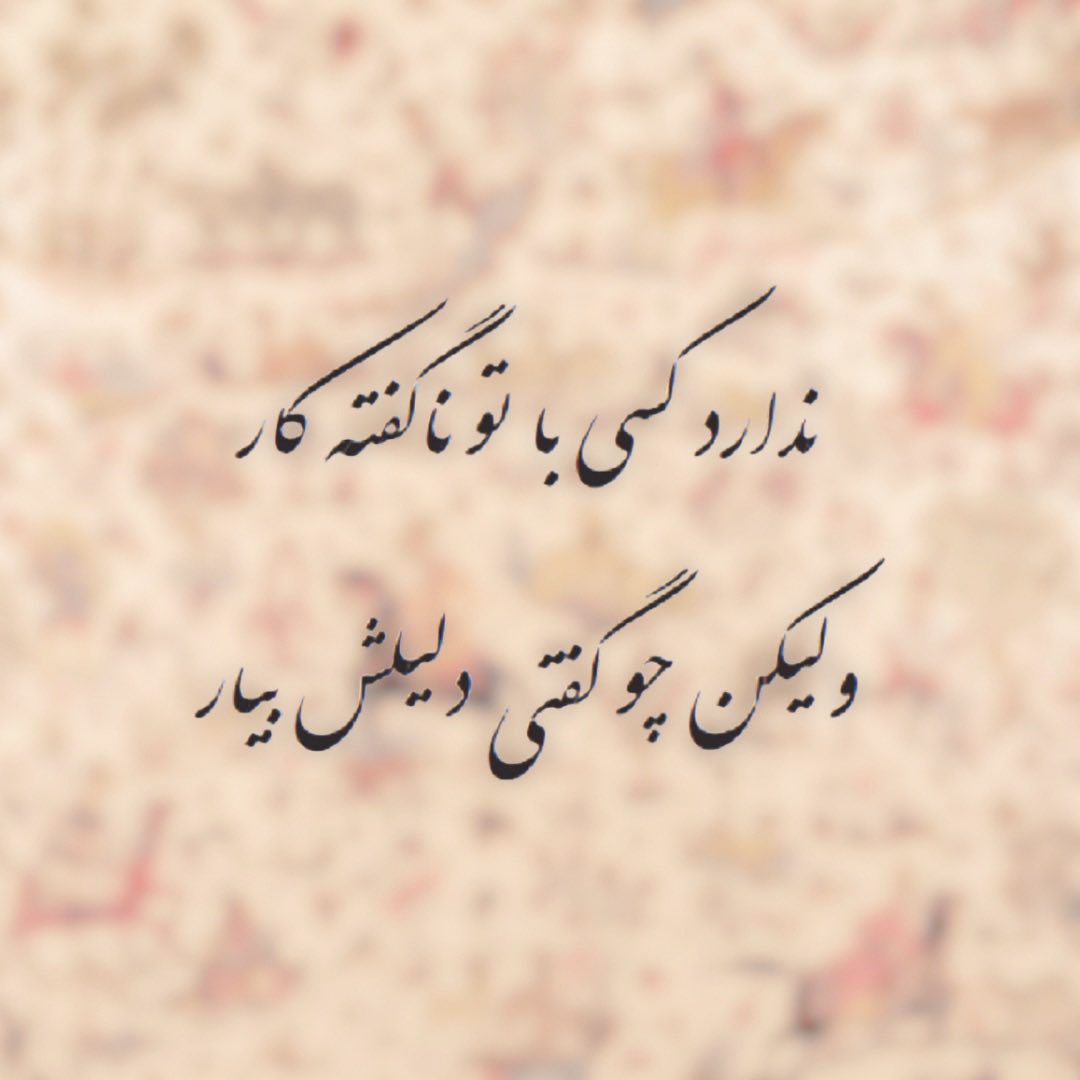
 Many can possess knowledge, or even the right to it, but very few can possess wisdom—ḥikmah. It is only the perfect balance of the two, to which our consciences acquiesce, that allows us to construct meaningful expressions, with both style and substance. (2/5)
Many can possess knowledge, or even the right to it, but very few can possess wisdom—ḥikmah. It is only the perfect balance of the two, to which our consciences acquiesce, that allows us to construct meaningful expressions, with both style and substance. (2/5)
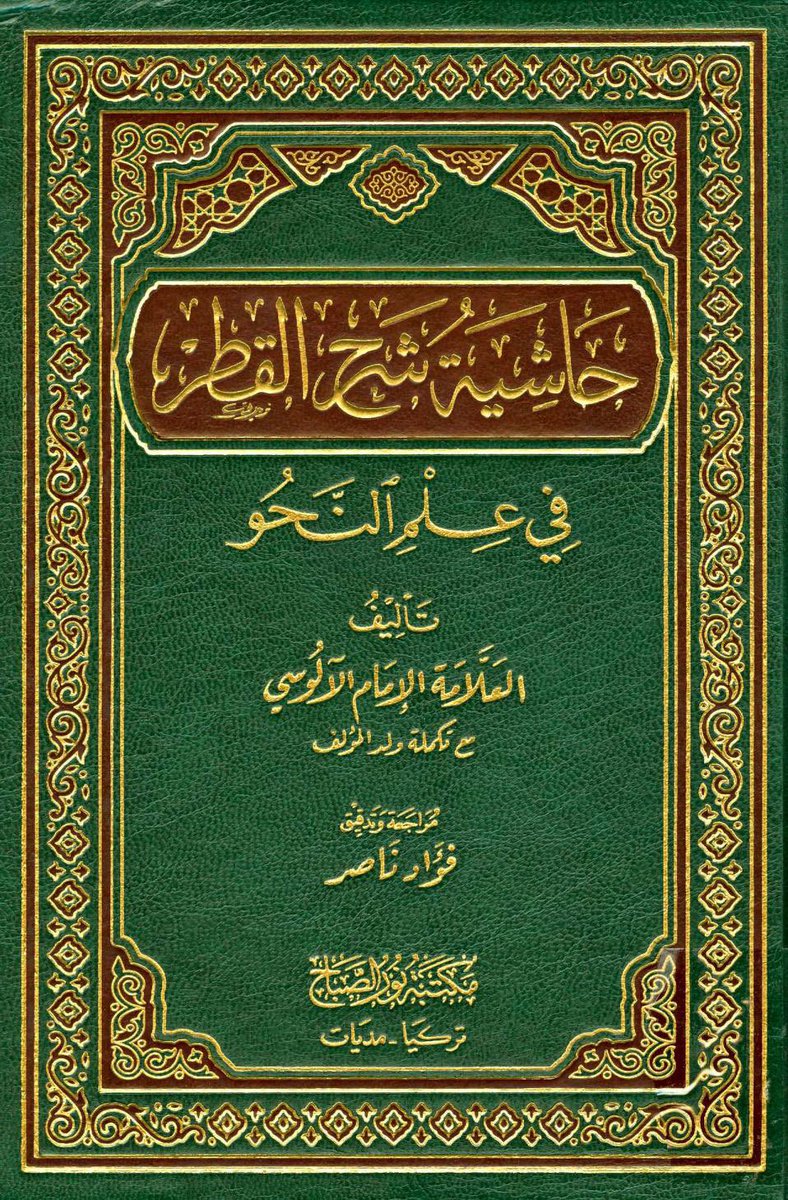
https://twitter.com/sn_makkah/status/1636728567978442753[1] Throughout the video, he keeps messing up the noun + adjective constructs. It seems like he is completely oblivious of this. He keeps saying:
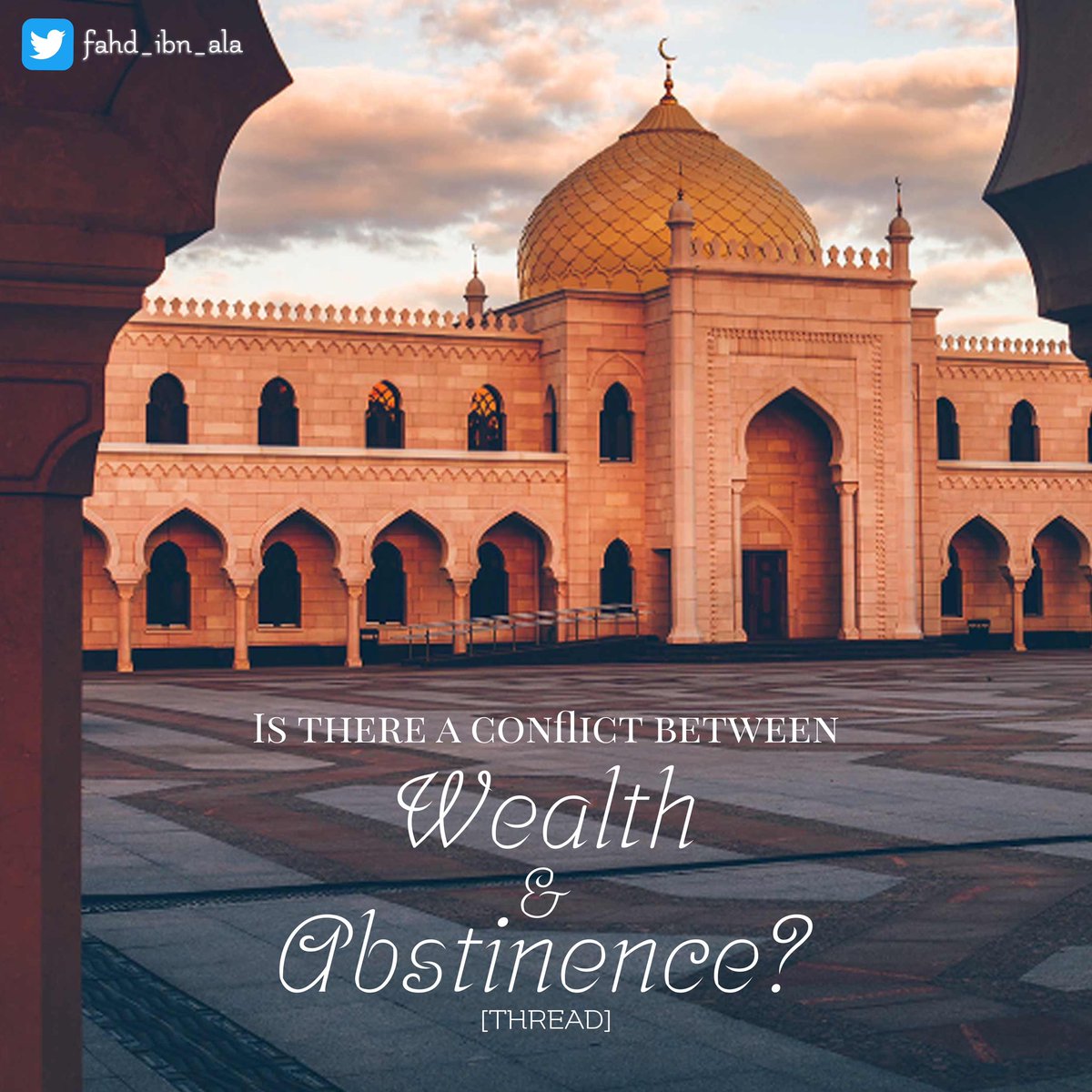
 [1] al-Ghazzālī (d. 505): In al-Iḥyā’, he clearly states: “It is sometimes assumed that a person who leaves wealth [tārik al-māl] is a pious/abstinent person [zāhid]. That’s not correct.” He also adds that not taking wealth and displaying simplicity can also be done by a poser.
[1] al-Ghazzālī (d. 505): In al-Iḥyā’, he clearly states: “It is sometimes assumed that a person who leaves wealth [tārik al-māl] is a pious/abstinent person [zāhid]. That’s not correct.” He also adds that not taking wealth and displaying simplicity can also be done by a poser. 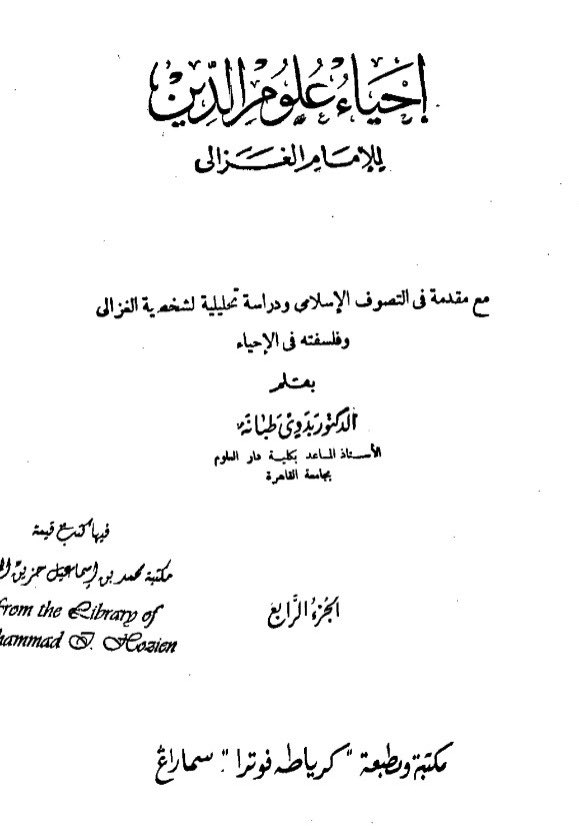

https://twitter.com/muslimbibliophi/status/1634254845925552129[1] The Mutakallim Track: Writings such as al-Iḥkām, al-Muntahā, etc. were written in line with this track. This track is also popularly called “the majority track” [ṭarīqah al-jumhūr].
https://twitter.com/Al3uny/status/1622639221600034817These are the people who speak untruth about God, the ones distant from His pleasure! In place of being compassionate to the afflicted, they consider their tribulation to be a justifiable punishment for them because of their sins! (2/4)
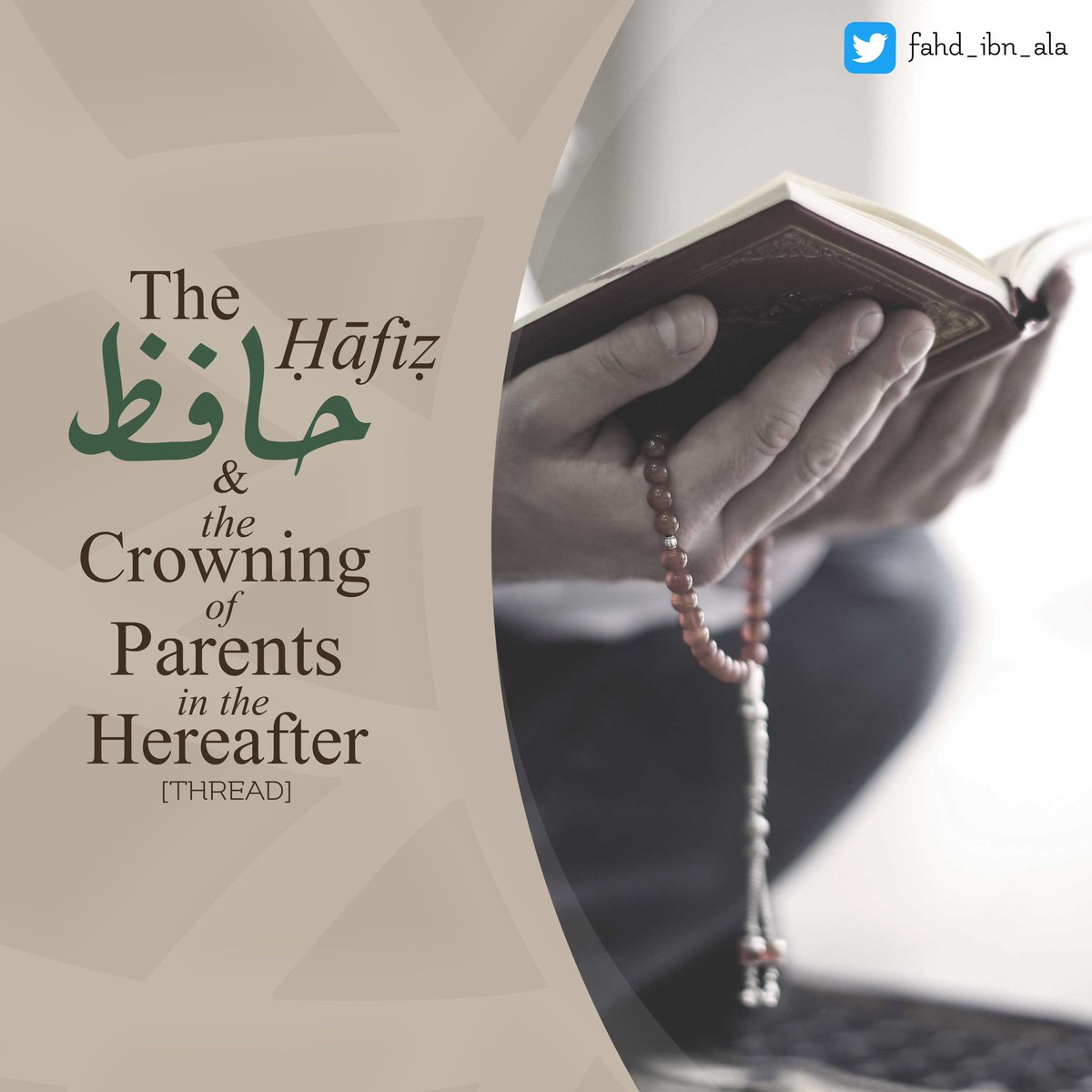
 One of the most popular narrations [aḥādīth] repeated as a merit/virtue for a person who has memorized the entire Qur’ān—known as a “ḥāfiẓ”—is the narration in which the Prophet ﷺ promised that the parents of this ḥāfiẓ will be crowned in the hereafter.
One of the most popular narrations [aḥādīth] repeated as a merit/virtue for a person who has memorized the entire Qur’ān—known as a “ḥāfiẓ”—is the narration in which the Prophet ﷺ promised that the parents of this ḥāfiẓ will be crowned in the hereafter.
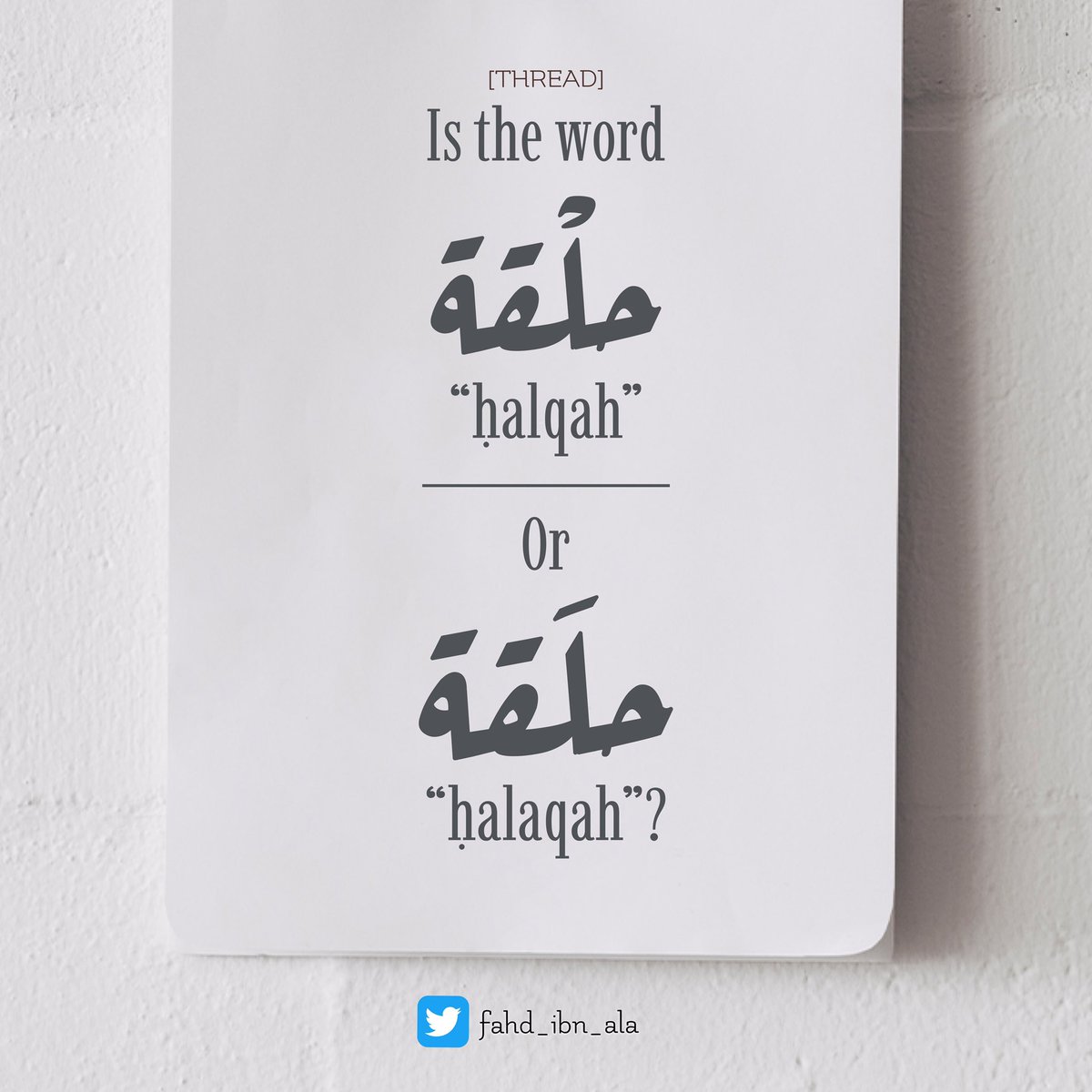
 The word “ḥalaqah” is very popular among students of knowledge. It refers to a “study circle” or a “group of students.” Most pronounce it as “ḥalaqah” [حَلَقة] (w/ a fatḥ of the lām) while some people call it a “ḥalqah” [حَلْقة] (w/ a sukūn of the lām). Which one is correct?
The word “ḥalaqah” is very popular among students of knowledge. It refers to a “study circle” or a “group of students.” Most pronounce it as “ḥalaqah” [حَلَقة] (w/ a fatḥ of the lām) while some people call it a “ḥalqah” [حَلْقة] (w/ a sukūn of the lām). Which one is correct?